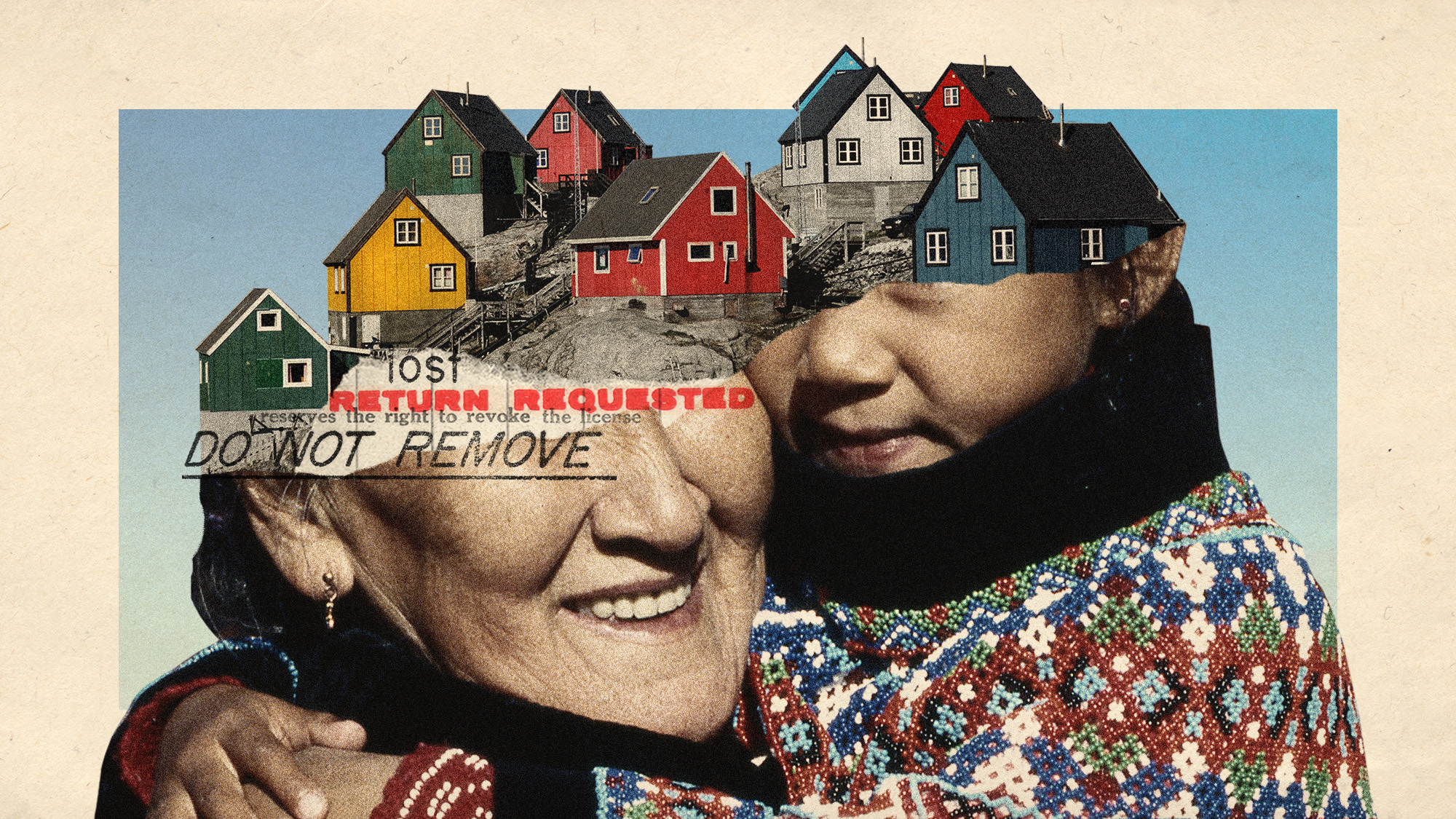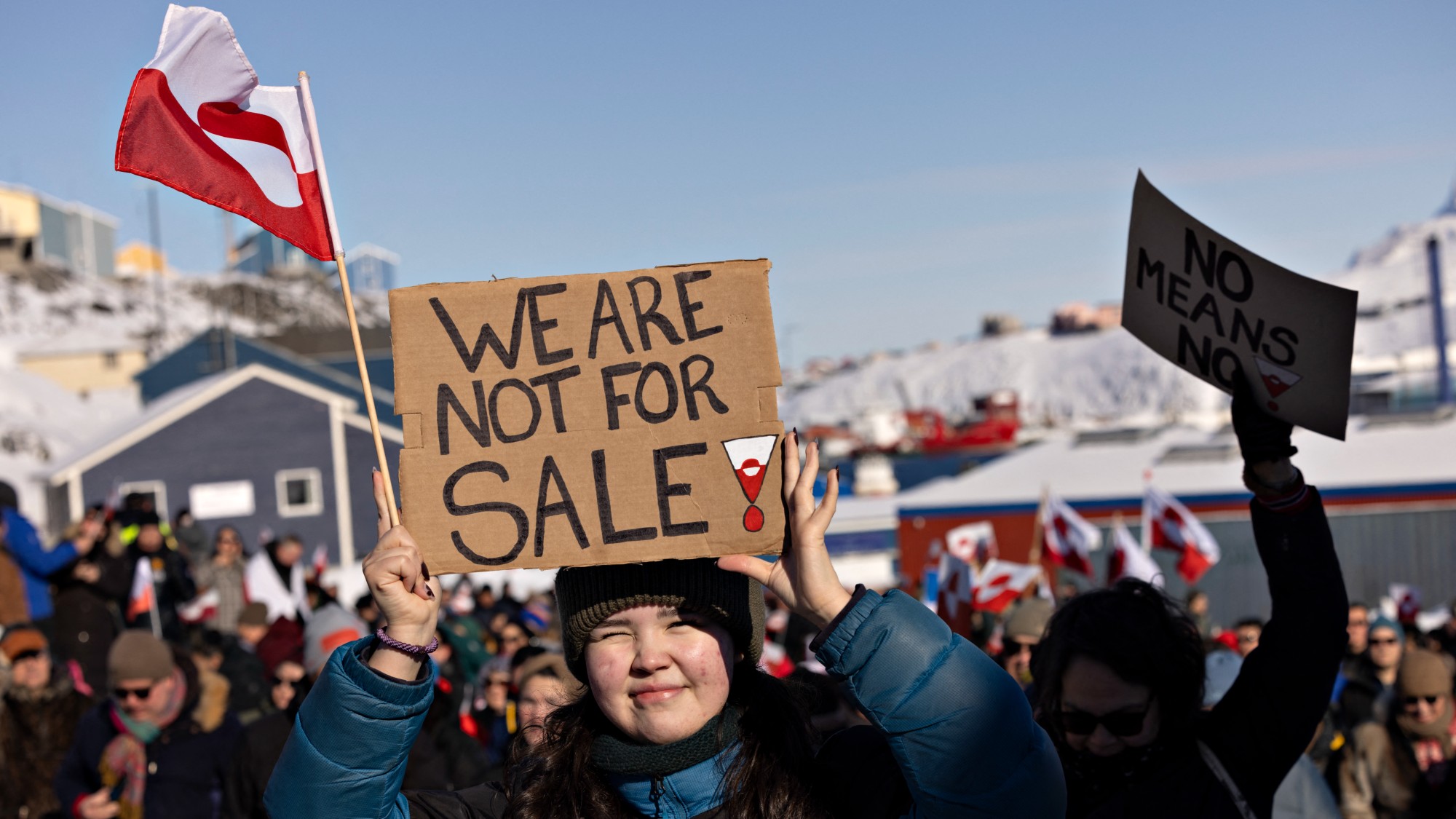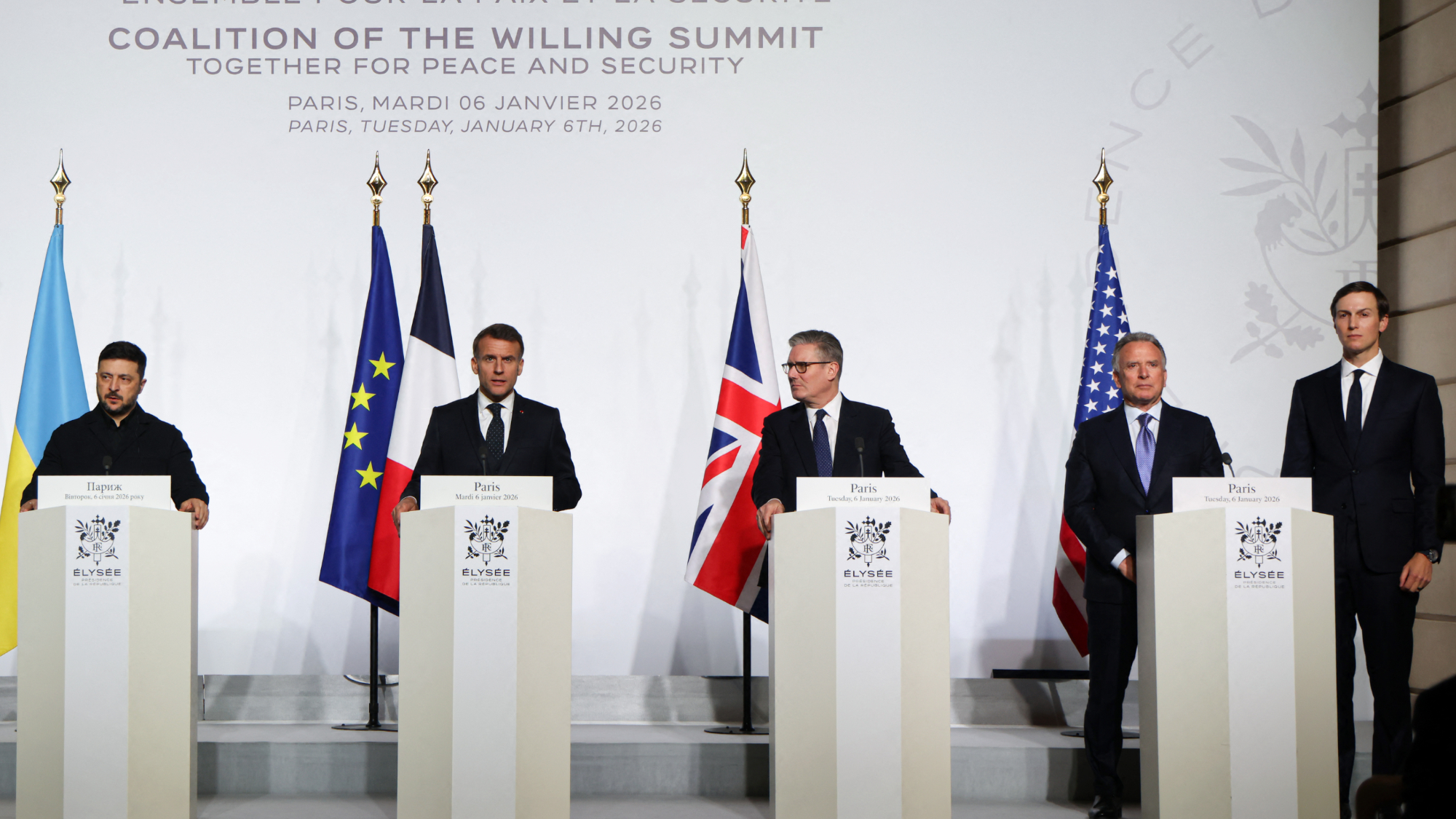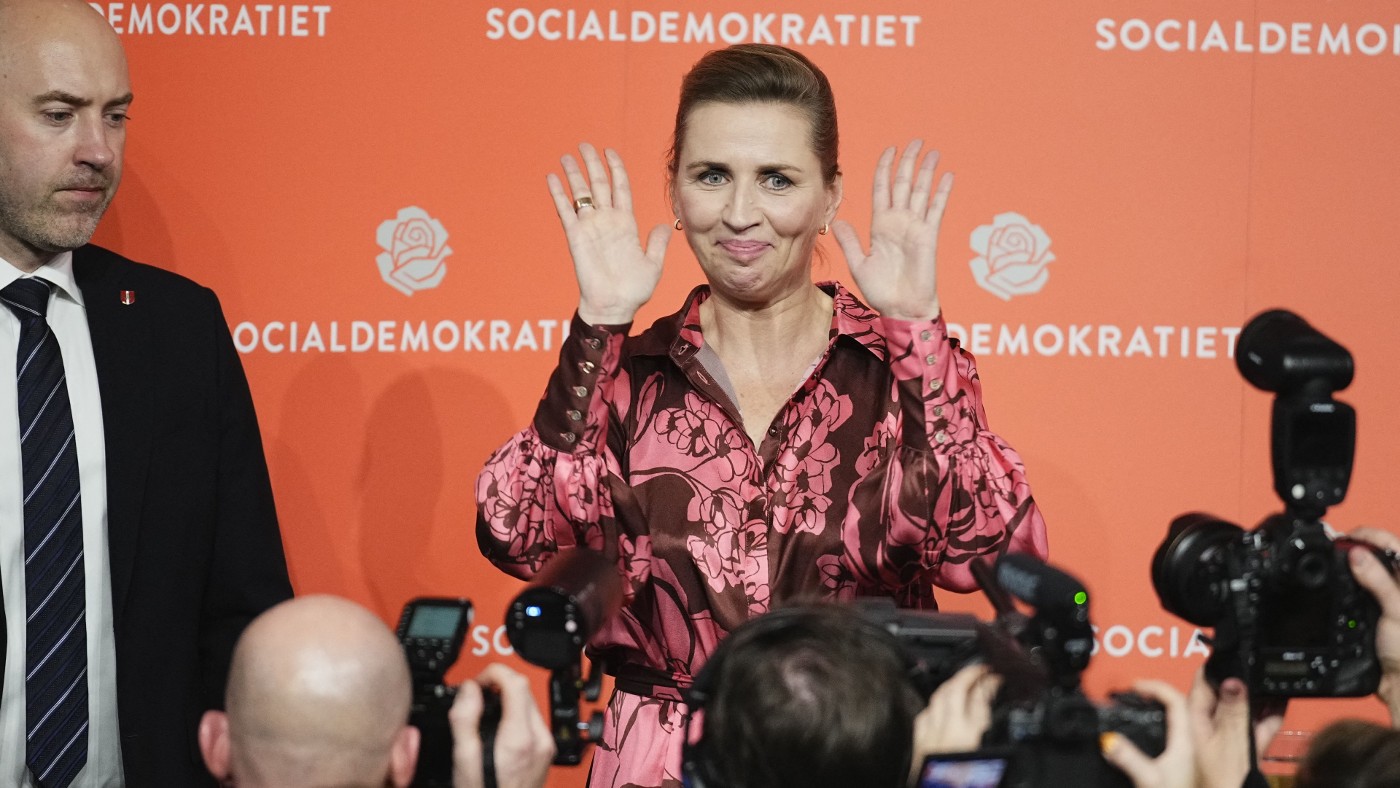The 'racist' parenting test fuelling Denmark-Greenland tensions
Campaigners say abolition of competency test, which failed to account for Inuit culture, was 'long overdue'

A free daily email with the biggest news stories of the day – and the best features from TheWeek.com
You are now subscribed
Your newsletter sign-up was successful
With Donald Trump's vow to take charge of Greenland putting the status of the autonomous Danish territory in the spotlight, a controversial parenting test has become emblematic of the tensions between the Danish state and indigenous Greenlanders.
For years, campaigners have spoken out against "parenting competency" tests – forældrekompetenceundersøgelse in Danish, commonly shortened to FKU – used in Denmark by child protection services. They argue that the test discriminates against parents from Denmark's Greenlandic Inuit minority, which currently numbers around 17,000, because it fails to account for different cultural and social norms.
The Danish government has said it will no longer use the FKU in cases involving Greenlandic families – but the memory of high-profile recent cases of Inuit mothers being separated from their children will take a long time to fade.
The Week
Escape your echo chamber. Get the facts behind the news, plus analysis from multiple perspectives.

Sign up for The Week's Free Newsletters
From our morning news briefing to a weekly Good News Newsletter, get the best of The Week delivered directly to your inbox.
From our morning news briefing to a weekly Good News Newsletter, get the best of The Week delivered directly to your inbox.
'Far-reaching consequences'
Close to 6% of native Greenlandic children in Denmark are in care or living in foster homes, compared to around 1% of Danish children, according to a 2022 report by the Danish Centre for Social Science Research. The reasons for this are complex. The report found that "the number of Greenlandic families in Denmark with serious social problems such as abuse and financial problems is greater than the number of Danish families in the same situation", said the Greenlandic Broadcasting Corporation. But "the relationship between Greenlandic families and Danish caseworkers is often worsened by language and cultural differences".
The Danish Institute for Human Rights said in 2022 that Greenlandic parents ran a higher risk of obtaining low test scores because of cultural differences and language barriers. "Misjudgments" made as a result of the test "can have far-reaching consequences for both children and parents, as in the extreme they can contribute to the forced removal of a child".
In November, a Greenlandic Inuit woman's new-born daughter was "forcibly removed from her arms" by Danish social workers hours after she gave birth, said The Times. Keira Alexandra Kronvold had failed the FKU assessment while pregnant – according to her case file, one cause for concern was that different interpretations of facial expressions in Inuit culture would make it hard for Kronvold to raise her child in line with the "social expectations and codes necessary to navigate Danish society".
'Significant U-turn'
Last month, Denmark announced that the FKU would no longer be used on Greenlandic families, citing doubts "as to whether a standardised psychological test sufficiently takes into account the Greenlandic culture and language". Instead, such cases will be handled with the help of a special unit which has Greenlandic cultural expertise. The government has also reportedly agreed to reassess cases where psychological tests may have led to an unfair removal of Greenlandic children.
A free daily email with the biggest news stories of the day – and the best features from TheWeek.com
This marks a "significant U-turn" in policy, said The Guardian. But some "questioned the timing", so soon after Trump's declaration that acquiring Greenland would be an "absolute necessity" for the US.
Aka Hansen, an Inuit film-maker who has led protests against the FKU, told the newspaper the abolition of the test was "long overdue". "It's a big surprise to us that all of a sudden they are able to make changes to the law," she added.
Greenland's Prime Minister Múte Egede said this month that the territory had "had enough" of being told it should be grateful to Copenhagen for being "good colonial masters". If Denmark had treated Greenlanders better historically, he added, perhaps they would not be debating the island's future.
Harriet Marsden is a senior staff writer and podcast panellist for The Week, covering world news and writing the weekly Global Digest newsletter. Before joining the site in 2023, she was a freelance journalist for seven years, working for The Guardian, The Times and The Independent among others, and regularly appearing on radio shows. In 2021, she was awarded the “journalist-at-large” fellowship by the Local Trust charity, and spent a year travelling independently to some of England’s most deprived areas to write about community activism. She has a master’s in international journalism from City University, and has also worked in Bolivia, Colombia and Spain.
-
 How the FCC’s ‘equal time’ rule works
How the FCC’s ‘equal time’ rule worksIn the Spotlight The law is at the heart of the Colbert-CBS conflict
-
 What is the endgame in the DHS shutdown?
What is the endgame in the DHS shutdown?Today’s Big Question Democrats want to rein in ICE’s immigration crackdown
-
 ‘Poor time management isn’t just an inconvenience’
‘Poor time management isn’t just an inconvenience’Instant Opinion Opinion, comment and editorials of the day
-
 Greenland’s capital becomes ground zero for the country’s diplomatic straits
Greenland’s capital becomes ground zero for the country’s diplomatic straitsIN THE SPOTLIGHT A flurry of new consular activity in Nuuk shows how important Greenland has become to Europeans’ anxiety about American imperialism
-
 Trump backs off Greenland threats, declares ‘deal’
Trump backs off Greenland threats, declares ‘deal’Speed Read Trump and NATO have ‘formed the framework for a future deal,’ the president claimed
-
 Europe moves troops to Greenland as Trump fixates
Europe moves troops to Greenland as Trump fixatesSpeed Read Foreign ministers of Greenland and Denmark met at the White House yesterday
-
 Why Greenland’s natural resources are nearly impossible to mine
Why Greenland’s natural resources are nearly impossible to mineThe Explainer The country’s natural landscape makes the task extremely difficult
-
 What do the people of Greenland want for their future?
What do the people of Greenland want for their future?As Europe prevaricates over US threats for annexation there is a unifying feeling of self-determination among Greenlanders
-
 Trump’s Greenland threats overshadow Ukraine talks
Trump’s Greenland threats overshadow Ukraine talksSpeed Read The Danish prime minister said Trump’s threats should be taken seriously
-
 Denmark’s record-setting arms purchase raises eyebrows and anxiety
Denmark’s record-setting arms purchase raises eyebrows and anxietyIN THE SPOTLIGHT By eschewing American-made munitions for their European counterparts, the Danish government is bracing for Russian antagonism and sending a message to the West
-
 Social Democrats cling on to power in Denmark
Social Democrats cling on to power in DenmarkSpeed Read Incumbent PM Mette Frederiksen wants to form a broad coalition of centrist parties